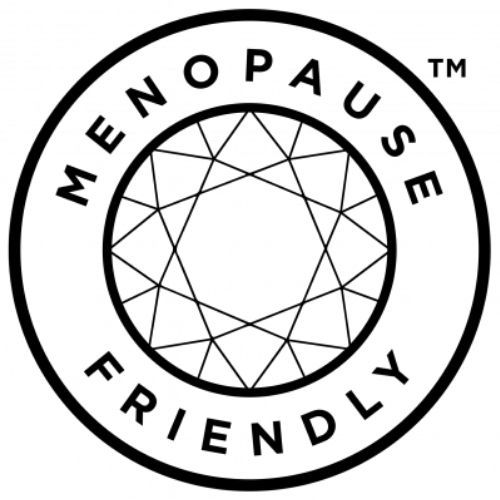World Menopause Day gives us all an opportunity to pause and consider the impact which this perfectly natural event has on half the population. Not least the impact which is felt in the workplace.
According to the CIPD women over 50 are the fastest growing group in the workforce. At the same time, 51 is the average age for the menopause transition.
Its impact is considerable, yet even now, much of that impact remains hidden from sight and therefore simply not addressed.
CIPD research shows that almost 60% women say menopause symptoms have a negative impact on their working lives. These include difficulties in concentrating (65%), increased stress (58%) and the loss of patience with clients and colleagues (52%).
Almost a third (30%) said they’d needed to take sick leave due to menopause, yet only a quarter felt able to explain to their managers exactly why they needed to take that leave.
Not only does this have an impact on the individual’s performance, but a direct impact on their colleagues, clients and ultimately on the business itself.
Failure not only to address the issue, but even to have the opportunity to talk openly about it and share their concerns and worries, drives many to consider leaving work altogether (one in four consider leaving their job due to menopause symptoms, according to recent research).
For businesses, this means losing valuable, senior female talent, those at the peak of their careers, with years of experience behind them.
Organisations are recognising the fact that diversity matters to business performance and the need to promote women to senior level positions, but individuals and organisations are being held back by menopause, a predictable life change that remains largely unaddressed within the workplace, assuming it’s even spoken about at all.
So, on World Menopause Day, what practical, actionable steps can HR take to put this key life stage and its impact on all employees on the agenda?
What changes can we all make now to ensure that the menopause is discussed openly, understood and that effective support is provided for everyone in the workplace?
Here are three steps you can take right away to start to make those changes.
Make it visible
The first step is to create an environment where the menopause is no longer hidden or seen as a subject which is too embarrassing to be talked about.
The CIPD research shows that a third of women (34%) felt they couldn’t state the real reason why they needed to take time away from work. A similar number felt that their line managers were unsupportive (32%).
Those fears and worries need to be addressed. Kick-starting the conversation through peer group ‘menopause cafés’, themed events and providing access to good quality information are all starting points that will help your workforce see menopause as something that anyone can talk about.
Menopause is not just a women’s issue – it will impact men in their work and personal lives, albeit indirectly. Develop specific resources aimed at male employees and be sure to include everyone in the conversation, as it’s vital men are included in the conversation.
Open up pathways
Easy routes to access support need to be created – and communicated. Options need to be provided which allow individuals a choice in how and to whom they can approach to discuss the way the menopause is impacting them.
Line managers, senior colleagues, or even specially created menopause champions – there need to be options that allow employees to feel comfortable, whichever they choose.
Those line managers and HRs also need to know that these different options exist and be able to support the employee whichever route they choose to access – an intranet page dedicated to menopause support or clear signposting to relevant wellbeing initiatives or resources are all effective ways to increase the visibility of menopause support available.
Provide personalised menopause support
For organisations committed to supporting their workforce during the menopause, personalised, expert-led support can be truly life-changing for employees. The Peppy app, for example, connects employees to menopause practitioners over chat, live events and 40-minute video consultations.
Filling the void between hard-to-access private medical care and confusing Google searches, personalised support for menopause gives employees access to highly-trained experts at a time that suits them, including out of usual working hours.
Crucially, through a digital platform like Peppy’s, the bespoke support and library of resources can be accessed by anyone, including remote workers or employees who work shifts, all via a confidential, discrete and secure mobile app.
World Menopause Day not only gives us an opportunity to raise this important issue, but also to make a significant change to the way a natural life event is handled in the workplace.
This change in attitude will make a significant difference to how women feel supported and valued, both from a wellbeing perspective and in their careers. And it’s not just that menopause support is the right thing to do, it’s also the right thing for business.
Enhanced menopause support will in turn allow organisations to hold onto talented female employees and show potential future employees that yours is an organisation that is forward-thinking, truly understands the needs of its people throughout their careers, and is taking action to make a real difference.
For your free expert’s guide to menopause support that you can download today, click here. You can also find out more about the benefits of personalised menopause support and sign up for a Lunch & Learn on Peppy’s website.
Peppy is the digital health app that offers employees personalised menopause support, connecting users to highly-qualified experts via chat, events and virtual consultations.
Kathy Abernethy is immediate past chair of the British Menopause Society, author of ‘Menopause: the One-Stop Guide’ and director of Menopause Services at Peppy.












